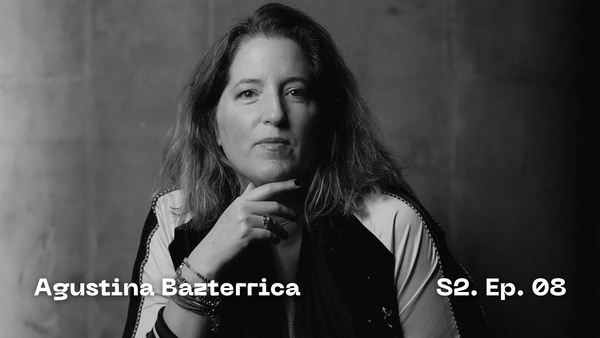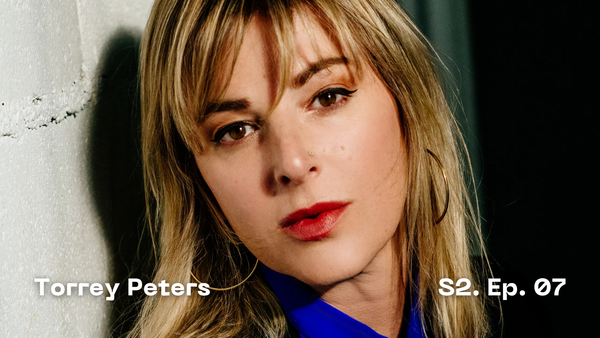Women in Translation: 14 books that will leave you in shambles
Translated tales of rage, desire, dissociation, and descent.

August is Women in Translation Month, and while there’s no shortage of lists highlighting global literary gems, this list isn’t here for polite recommendations or literary tourism.
There is something about translated fiction that just hit’s different. Maybe it’s the cultural nuances that add layers to the stories (for example, I recently learned during my interview with Mariana Enriquez that in Argentina it’s perfectly normal to be out at about after midnight doing things). Maybe it’s that these stories are mostly short in length and pack a punch with the pages they have. Maybe it’s in the process of translation itself.
In any case, these books will rattle and devastate you, long after you’ve finished the final page.
Whether it’s through obsession, madness, or quiet revolt, each of these translated works pulls you into a world that feels a little off-kilter in the best way.
If you're drawn to oddities, unreliable narrators and unexpected storylines, these 14 books are for you.
A Sunny Place for Shady People by Mariana Enriquez
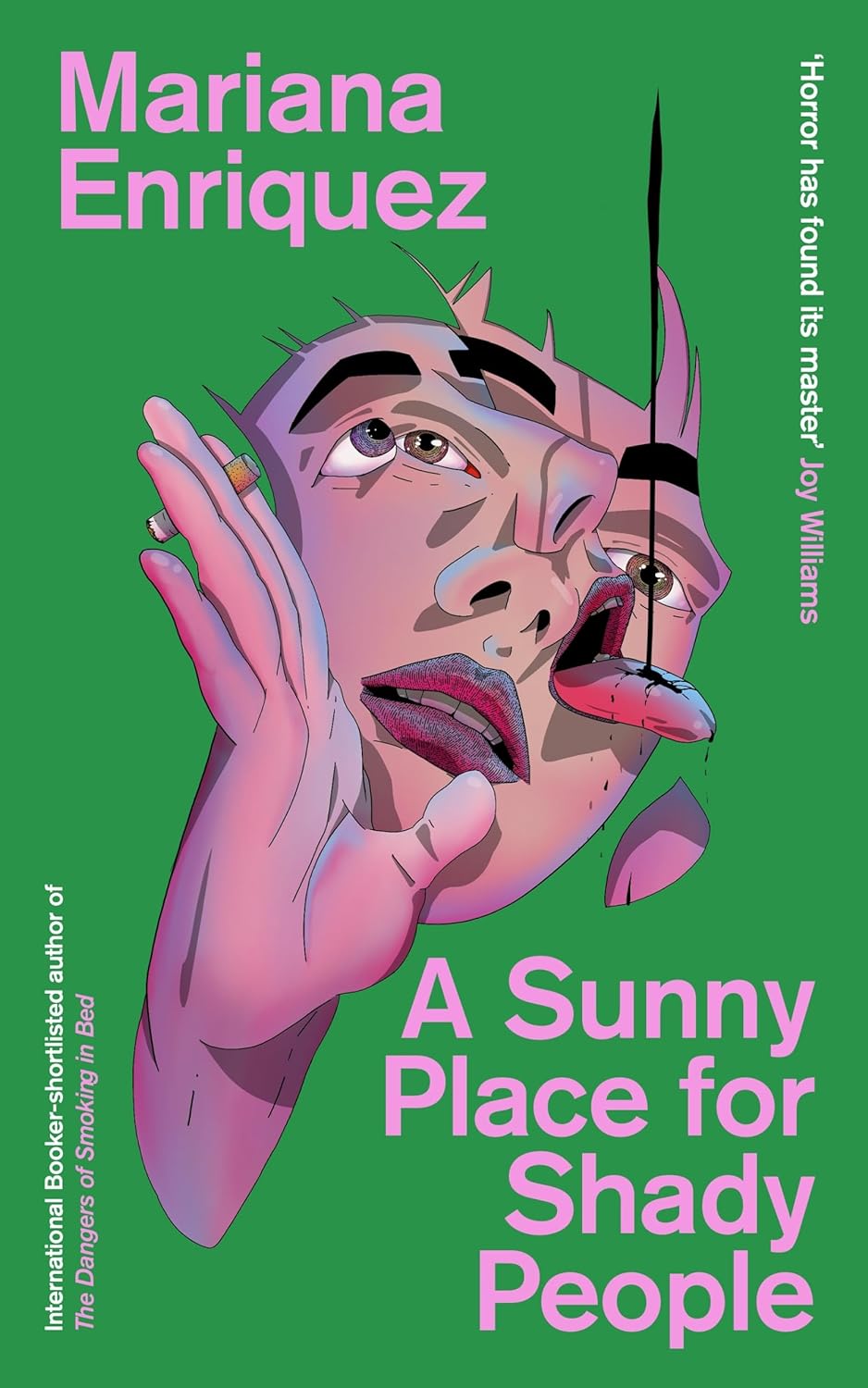
On the shores of this river, all the birds that fly, drink, perch on branches, and disturb siestas with the demonic squawking of the possessed—all those birds were once women.
Welcome to Argentina and the fascinating, frightening, fantastical imagination of Mariana Enriquez. In twelve spellbinding new stories, Enriquez writes about ordinary people, especially women, whose lives turn inside out when they encounter terror, the surreal, and the supernatural. A neighbourhood nuisanced by ghosts, a family whose faces melt away, a faded hotel haunted by a girl who dissolved in the water tank on the roof, a riverbank populated by birds that used to be women—these and other tales illuminate the shadows of contemporary life, where the line between good and evil no longer exists.
Lyrical and hypnotic, heart-stopping and deeply moving, Enriquez’s stories never fail to enthrall, entertain, and leave us shaken. Translated by the award-winning Megan McDowell, A Sunny Place for Shady People showcases Enriquez’s unique blend of the literary and the horrific, and underscores why Kazuo Ishiguro, winner of the Nobel Prize for Literature, calls her “the most exciting discovery I’ve made in fiction for some time.”
Reservoir Bitches by Dahlia de la Cerda

A debut linked story collection of gritty, streetwise, and wickedly funny fiction from Mexico.
Life’s a bitch. That’s why you gotta rattle her cage, even if she’s foaming at the mouth.
In the linked stories of Reservoir Bitches, thirteen Mexican women prod the bitch that is Life as they fight, sew, skirt, cheat, cry, and lie their way through their tangled circumstances. From the all-powerful daughter of a cartel boss to the victim of transfemicide, from a houseful of spinster seamstresses to a socialite who supports her politician husband by faking Indigenous roots, these women spit on their own reduction and invent new ways to survive, telling their stories in bold, unapologetic voices. At once social critique and black comedy, Reservoir Bitches is a raucous debut from one of Mexico’s most thrilling new writers.
The Vegetarian by Han Kang
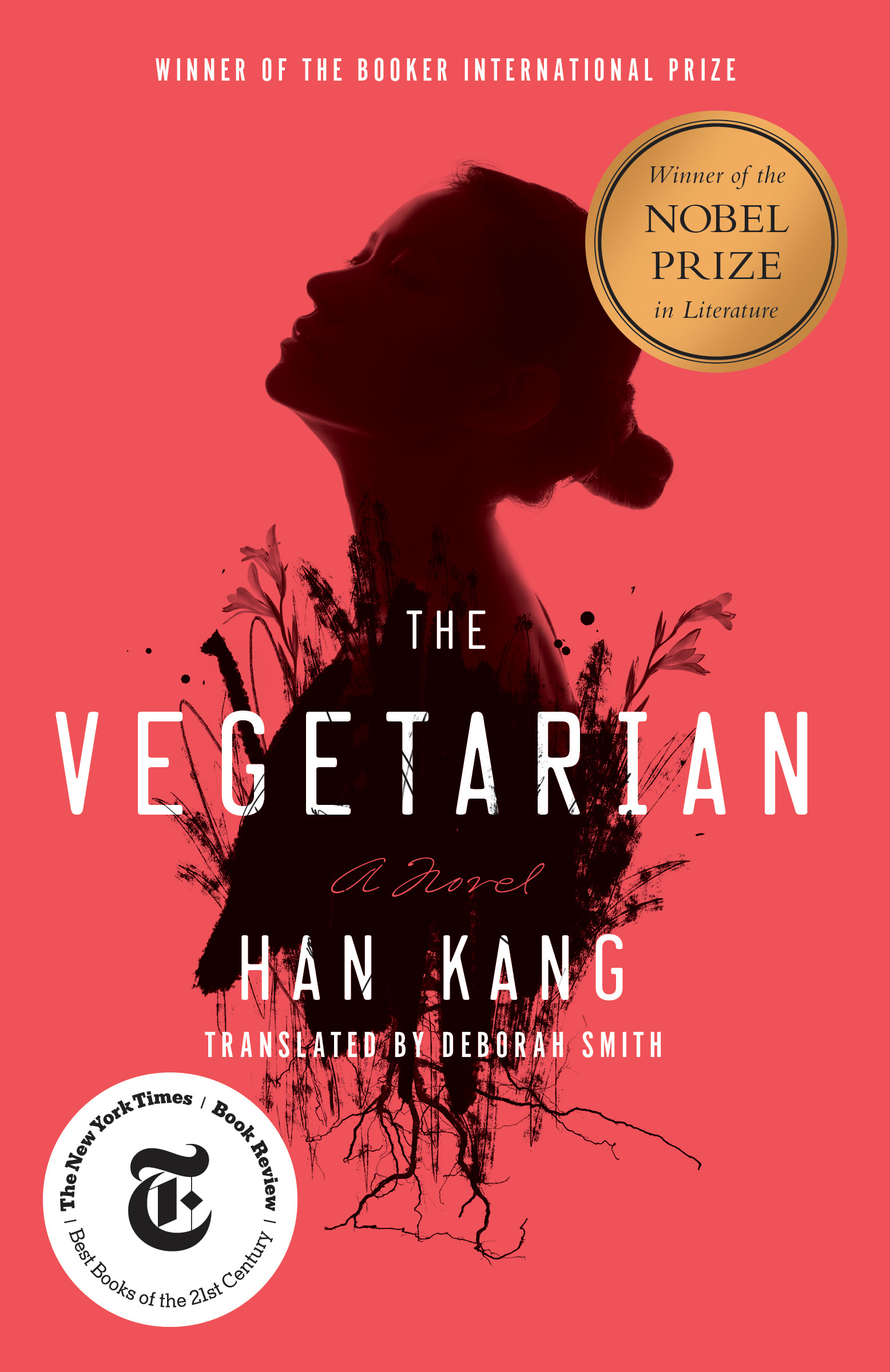
Before the nightmares began, Yeong-hye and her husband lived an ordinary, controlled life. But the dreams—invasive images of blood and brutality—torture her, driving Yeong-hye to purge her mind and renounce eating meat altogether. It’s a small act of independence, but it interrupts her marriage and sets into motion an increasingly grotesque chain of events at home.
As her husband, her brother-in-law and sister each fight to reassert their control, Yeong-hye obsessively defends the choice that’s become sacred to her. Soon their attempts turn desperate, subjecting first her mind, and then her body, to ever more intrusive and perverse violations, sending Yeong-hye spiraling into a dangerous, bizarre estrangement, not only from those closest to her, but also from herself.
Celebrated by critics around the world, The Vegetarian is a darkly allegorical, Kafka-esque tale of power, obsession, and one woman’s struggle to break free from the violence both without and within her.
Tender is The Flesh by Agustina Bazterrica
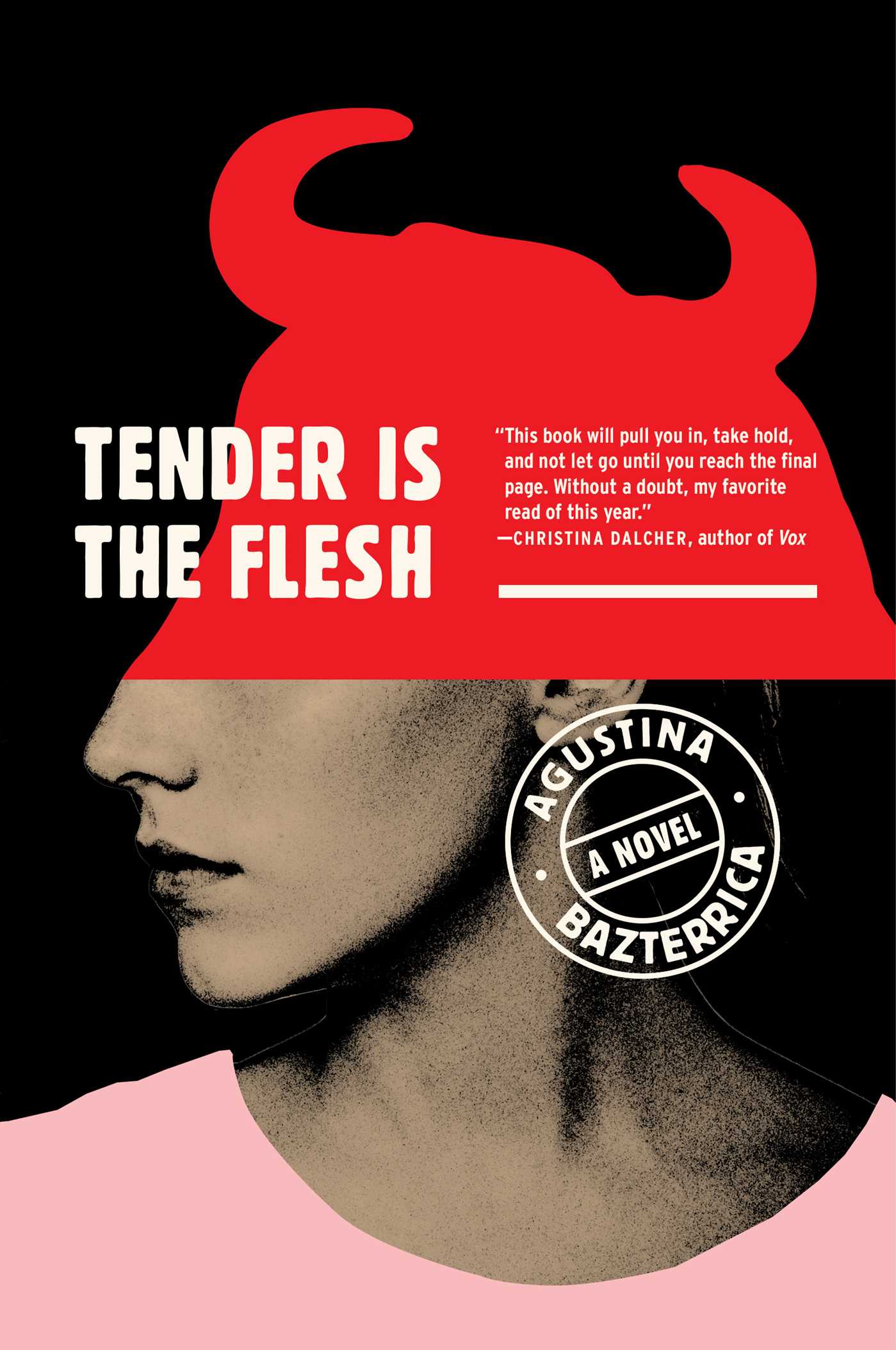
Working at the local processing plant, Marcos is in the business of slaughtering humans—though no one calls them that anymore.
His wife has left him, his father is sinking into dementia, and Marcos tries not to think too hard about how he makes a living. After all, it happened so quickly. First, it was reported that an infectious virus has made all animal meat poisonous to humans. Then governments initiated the “Transition.” Now, eating human meat—“special meat”—is legal. Marcos tries to stick to numbers, consignments, processing.
Then one day he’s given a a live specimen of the finest quality. Though he’s aware that any form of personal contact is forbidden on pain of death, little by little he starts to treat her like a human being. And soon, he becomes tortured by what has been lost—and what might still be saved.
My Husband by Maud Ventura
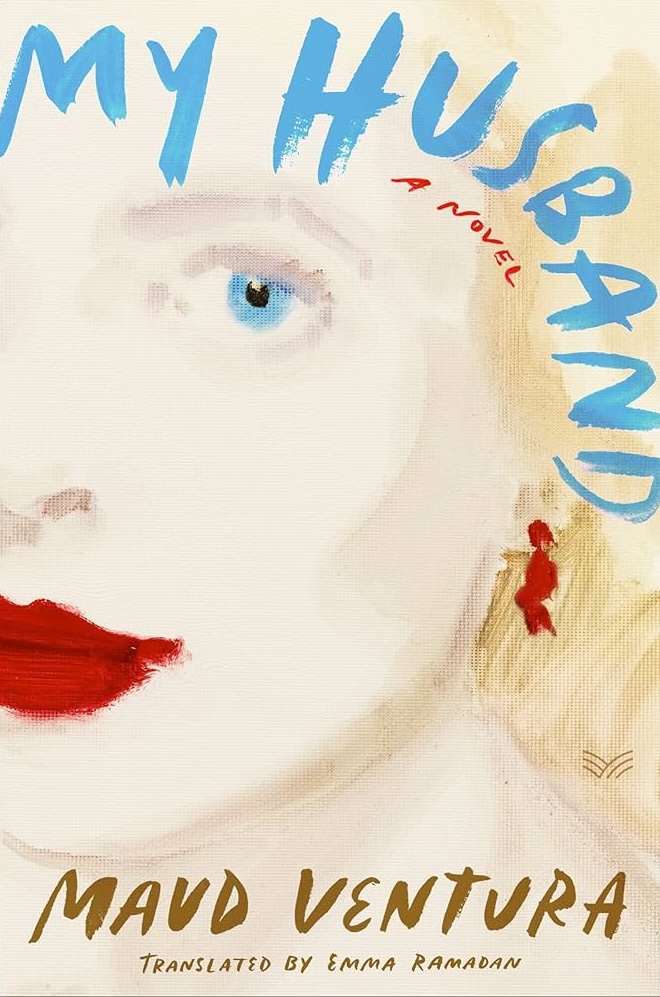
In this suspenseful and darkly funny debut novel, a sophisticated French woman spends her life obsessing over her perfect husband--but can their marriage survive her passionate love?
At forty years old, she has an enviable life: a successful career, stunning looks, a beautiful house in the suburbs, two healthy children, and most importantly, an ideal husband. After fifteen years together, she is still besotted with him. But she's never quite sure that her passion is reciprocated. After all, would a truly infatuated man ever let go of his wife's hand when they're sitting on the couch together?
Determined to keep their relationship perfect, she meticulously prepares for every encounter they have, always taking care to make her actions seem effortless. She watches him attentively, charting every mistake and punishing him accordingly to help him improve. And she tests him--setting traps to make sure that he still loves her just as much as he did when they first met.
Until one day she realizes she may have gone too far . . .
The winner of France's First Novel Prize in 2021, My Husband builds on the premise of hits like Gone Girl and Fates and Furies--how well can you really know your spouse?--and adds the tension and creepy obsession of You. The result is an irresistible read--compelling, tense, and engaging, infused with sly subversive humor, and told in an utterly original voice that makes it unforgettable.
Hunchback by Saou Ichikawa
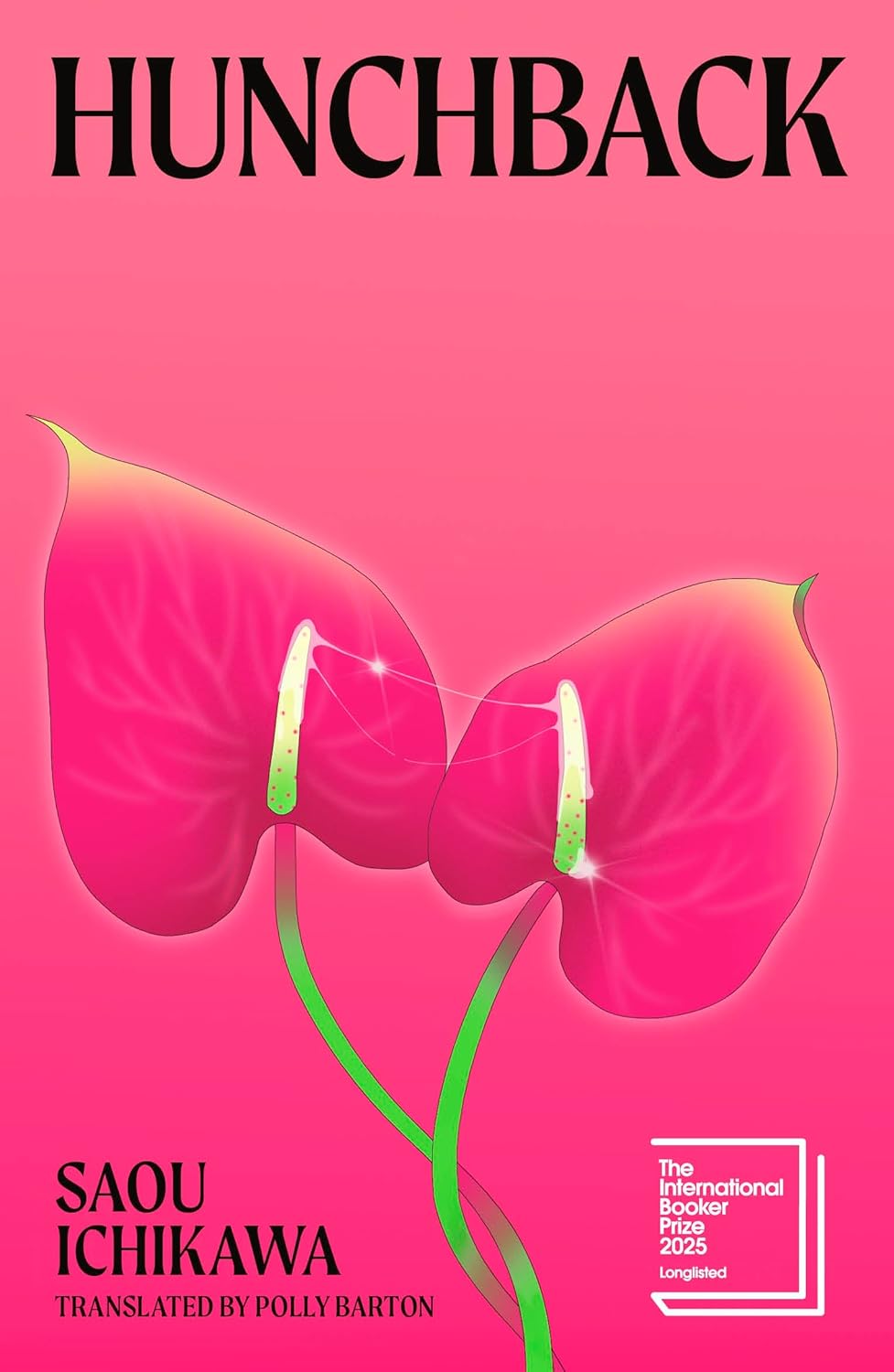
A bombshell bestseller in Japan, a provocative, defiant debut novel about a young woman in a care home seeking autonomy and the full possibilities of her life.
Born with a congenital muscle disorder, Shaka spends her days in her room in a care home outside Tokyo, relying on an electric wheelchair to get around and a ventilator to breathe. But if Shaka's physical life is limited, her quick, mischievous mind has no boundaries: She takes e-learning courses on her iPad, publishes explicit fantasies on websites, and anonymously troll-tweets to see if anyone is paying attention (“If I were to live again, I’d want to be a high-class prostitute”). One day, she tweets into the void an offer of an enormous sum of money for a sperm donor. To her surprise, her new nurse accepts the dare, unleashing a series of events that will forever change Shaka's sense of herself as a woman in the world.
Hunchback has shaken Japanese literary culture with its skillful depiction of the physical body and unrepentant humor. Winner of the prestigious Akutagawa Prize, it's a feminist story about the dignity of an individual who insists on her right to make choices for herself, no matter the consequences. Formally creative and refreshingly unsentimental, Hunchback depicts the joy, anger, and desires of a woman demanding autonomy in a world that doesn't always grant it to people like her. Full of wit, bite, and heart, this unforgettable novel reminds us all of the full potential of our lives, no matter the limitations we experience.
Earthlings by Sayaka Murata
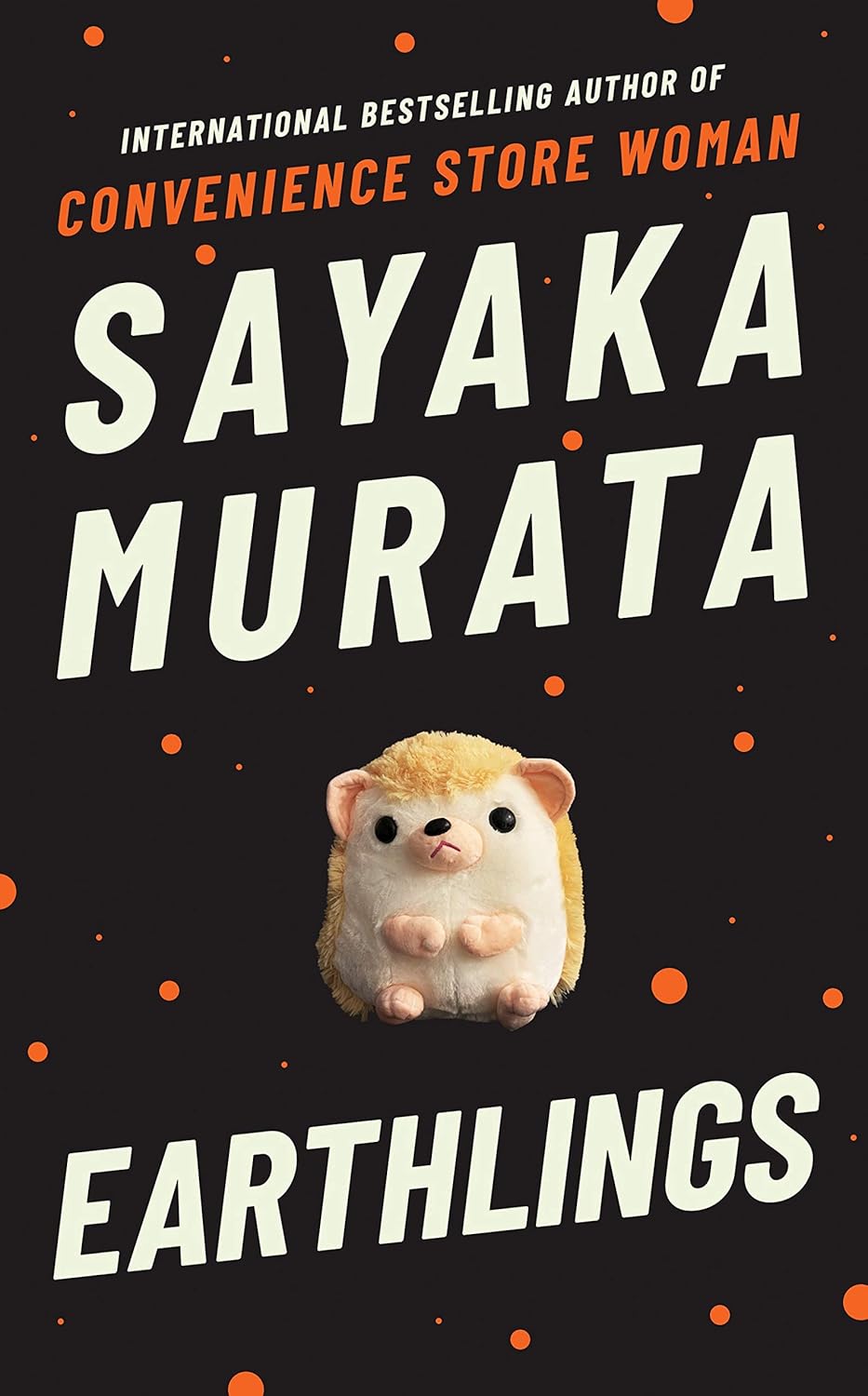
Natsuki isn't like the other girls. She has a wand and a transformation mirror. She might be a witch, or an alien from another planet. Together with her cousin Yuu, Natsuki spends her summers in the wild mountains of Nagano, dreaming of other worlds. When a terrible sequence of events threatens to part the two children forever, they make a promise: survive, no matter what.
Now Natsuki is grown. She lives a quiet life with her asexual husband, surviving as best she can by pretending to be normal. But the demands of Natsuki's family are increasing, her friends wonder why she's still not pregnant, and dark shadows from Natsuki's childhood are pursuing her. Fleeing the suburbs for the mountains of her childhood, Natsuki prepares herself with a reunion with Yuu. Will he still remember their promise? And will he help her keep it?
The Apple in The Dark by Clarice Lispector
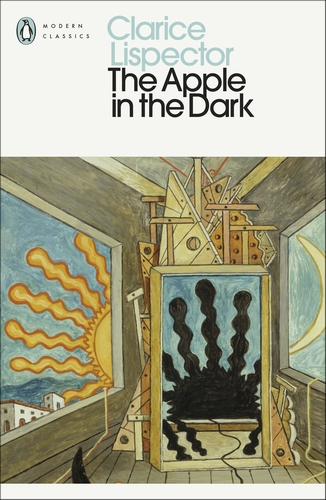
Described by Clarice Lispector as 'the best one', this intoxicating portrayal of a man searching for his destiny is her mystical, enigmatic masterpiece
'All I've got is hunger. And that instable way of grasping an apple in the dark-without letting it fall'
Martin is convinced that he has murdered his wife. In a delirium of guilt and grief, he wanders through a forest until he comes across an isolated farm run by Vitoria - an indomitable spinster who is 'afraid to live', and her flighty, obsessive cousin Ermelinda, who is terrified of death. As Martin works on Vitoria's land he is both haunted and comforted by memories of his wife and son. In the intense heat of the Brazilian summer, drought threatens both the farm and its inhabitants, and these three very different but equally domineering characters provoke each other into a realisation of their individual psychological isolation.
'The most important Brazilian woman writer of the twentieth century... The richness of The Apple in the Dark defies the explanatory power of any single interpretation' TLS
Cursed Bunny by Bora Chung
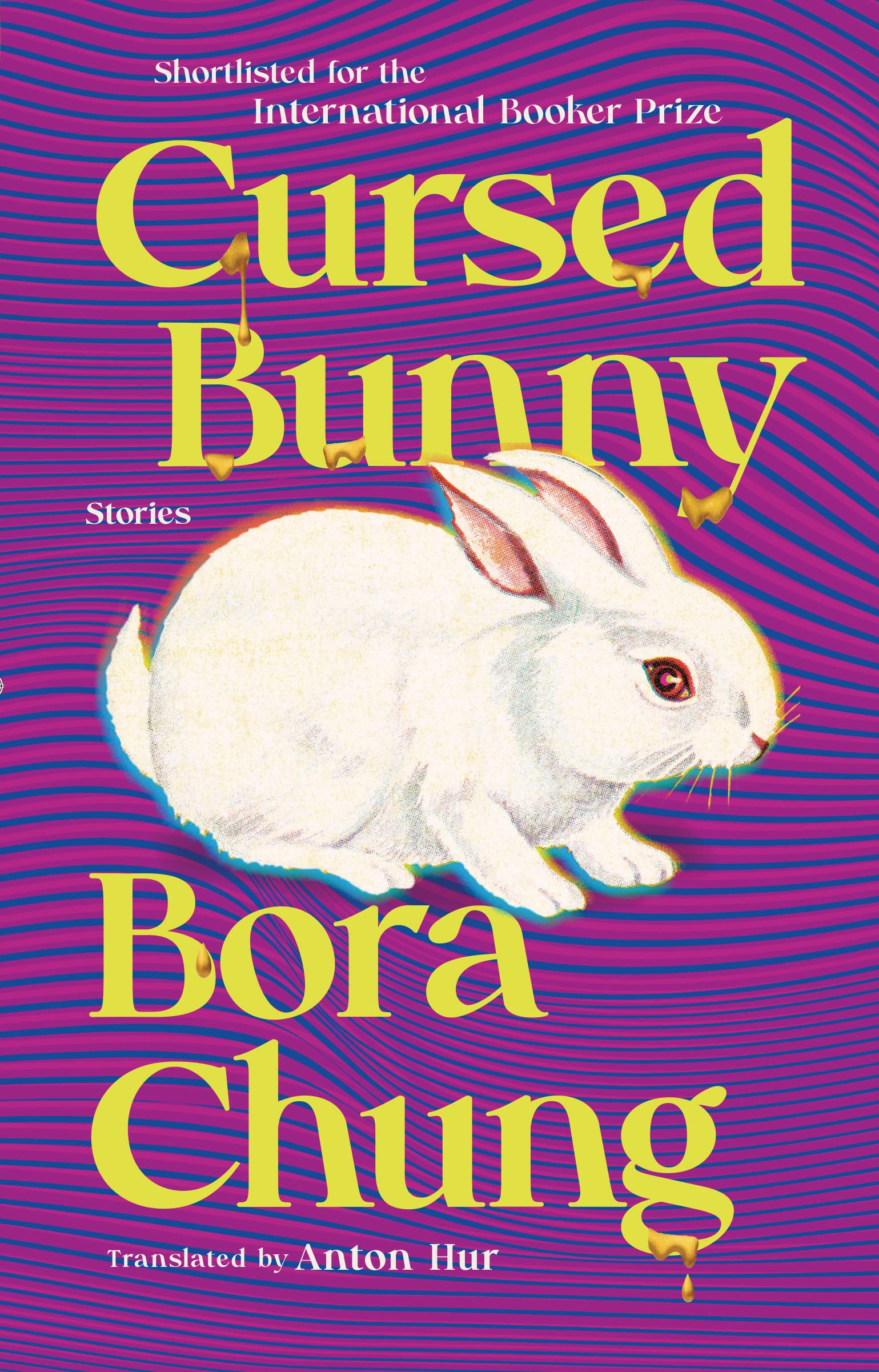
From a rising star of Korean literature, Cursed Bunny is a collection that will shock and surprise readers with each new tale. Translated by the acclaimed Anton Hur, Chung’s stories are wildly unique and imaginative, by turns thought-provoking and stomach-turning, where monstrous creatures take the shapes of furry woodland creatures and danger lurks in unexpected corners of everyday apartment buildings. But Chung’s rare, haunting universe could be our own, illuminating the ills of contemporary society.
“The Head” follows a woman haunted by her own waste. “The Embodiment” takes us into a dystopian gynecology office where a pregnant woman is told that her baby must have a father or face horrific consequences. Another story follows a young monster, forced into underground fight rings without knowing the force of his own power. The titular fable centers on a cursed lamp in the approachable shape of a rabbit, fit for a child’s bedroom.
Cursed Bunny is a book that screams to be read late into the night and passed on to the nearest set of hands the very next day.
Fever Dream by Samanta Schweblin
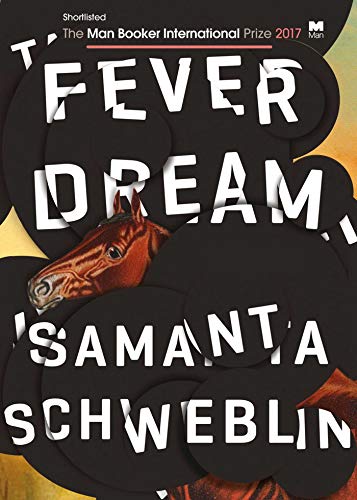
SHORTLISTED FOR THE MAN BOOKER INTERNATIONAL PRIZE 2017
A young woman named Amanda lies dying in a rural hospital clinic. A boy named David sits beside her. She’s not his mother. He’s not her child.
The two seem anxious and, at David’s ever more insistent prompting, Amanda recounts a series of events from the apparently recent past. As David pushes her to recall whatever trauma has landed her in her terminal state, he unwittingly opens a chest of horrors, and suddenly the terrifying nature of their reality is brought into shocking focus.
One of the freshest new voices to come out of the Spanish language, Samanta Schweblin creates an aura of strange and deeply unsettling psychological menace in this cautionary tale of maternal love, broken souls and the power and desperation of family.
I Who Have Never Known Men by Jacqueline Harpman
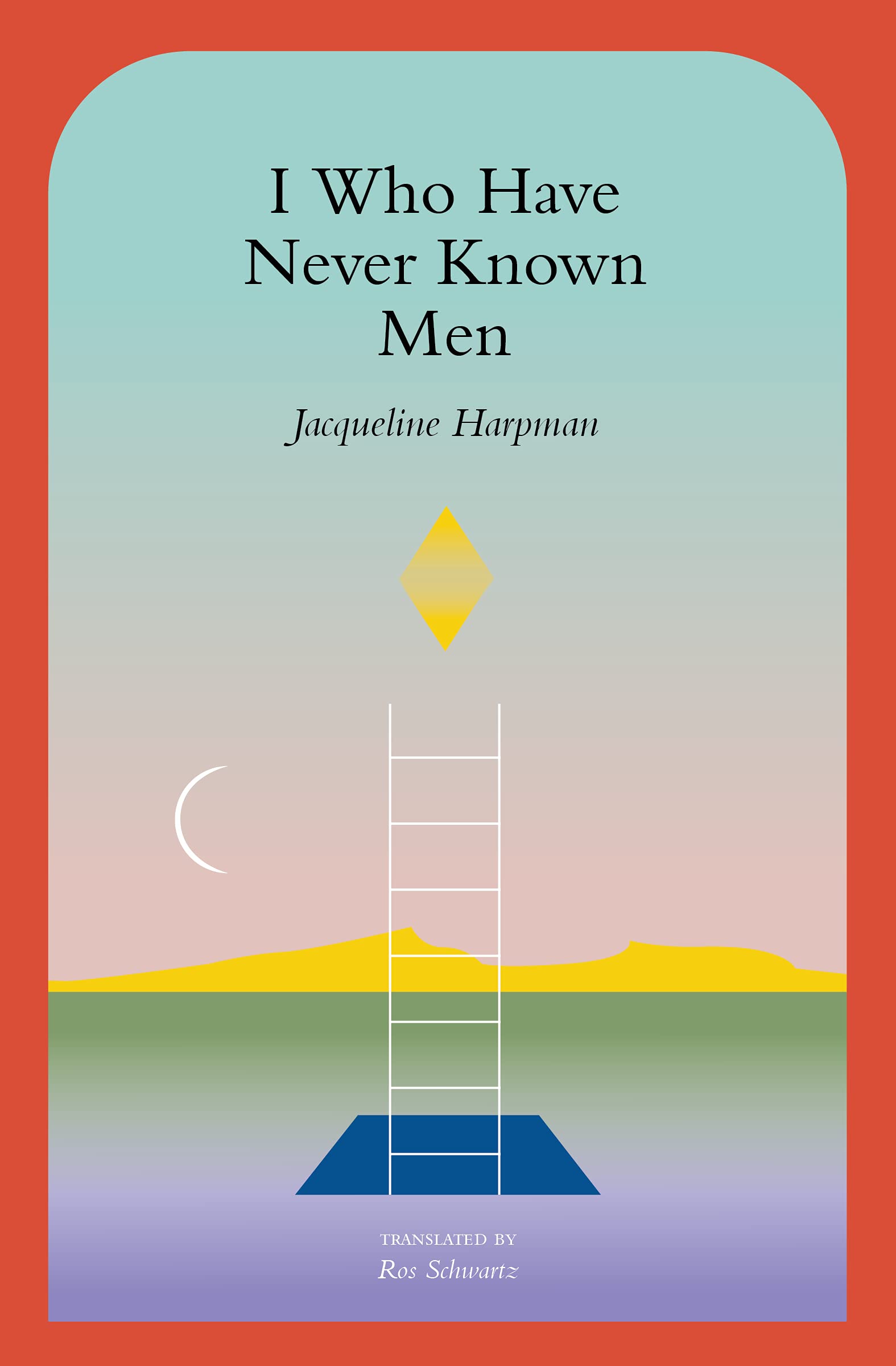
Deep underground, forty women live imprisoned in a cage. Watched over by guards, the women have no memory of how they got there, no notion of time, and only a vague recollection of their lives before.
As the burn of electric light merges day into night and numberless years pass, a young girl—the fortieth prisoner—sits alone and outcast in the corner. Soon she will show herself to be the key to the others' escape and survival in the strange world that awaits them above ground.
Jacqueline Harpman was born in Etterbeek, Belgium, in 1929, and fled to Casablanca with her family during WWII. Informed by her background as a psychoanalyst and her youth in exile, I Who Have Never Known Men is a haunting, heartbreaking post-apocalyptic novel of female friendship and intimacy, and the lengths people will go to maintain their humanity in the face of devastation. Back in print for the first time since 1997, Harpman’s modern classic is an important addition to the growing canon of feminist speculative literature.
Colony by Annika Norlin

Ants live in communities, where everyone helps out.
Everyone has a task for the community …
Everyone is needed.
No one has to know everything.
One morning, Emelie can't get out of bed. Her therapist calls it burnout. Her neighbour calls it the tiny work death. She needs to get away from the brightness of the city lights, the noise of the people, the constant demands, so she goes to the woods, pitches her tent overlooking the lake, breathes. And that's where she sees them, the
A man with a sad face.
A tall, strong, older woman.
A woman in her forties, squatting to examine an ant hill.
Another woman in her forties, short, long hair, ample bosom, good posture ? the leader?
An extremely beautiful man.
A slightly younger man, in a Helly Hansen jacket and trucker hat.
And a teenage boy, standing a little way from the group.
Who are they? What do they mean to each other? And why do they behave in such strange thanking the fish they eat, sleeping under a tree, singing off key, dancing without music, never letting the boy fully in?
As Emelie becomes more and more drawn to the Colony, she begins to re-evaluate her own lifestyle. Wouldn't it be nice to live as these seven do? Apart from society and its expectations. But groups always have their dynamics and roles. Which are you? And what if you want to change?
Revenge Yoko Ogawa

An aspiring writer moves into a new apartment and discovers that her landlady has murdered her husband. Years later, the writer’s stepson reflects upon his stepmother and the strange stories she used to tell him. Meanwhile, a surgeon’s lover vows to kill him if he does not leave his wife. Before she can follow-through on her crime of passion, though, the surgeon will cross paths with another remarkable woman, a cabaret singer whose heart beats delicately outside of her body. But when the surgeon promises to repair her condition, he sparks the jealousy of another man who would like to preserve the heart in a custom tailored bag. Murderers and mourners, mothers and children, lovers and innocent bystanders—their fates converge in a darkly beautiful web that they are each powerless to escape.
Macabre, fiendishly clever, and with a touch of the supernatural, Yoko Ogawa’s Revenge creates a haunting tapestry of death—and the afterlife of the living.
Drive Your Plow Over The Bones of The Dead by Olga Tokarczuk
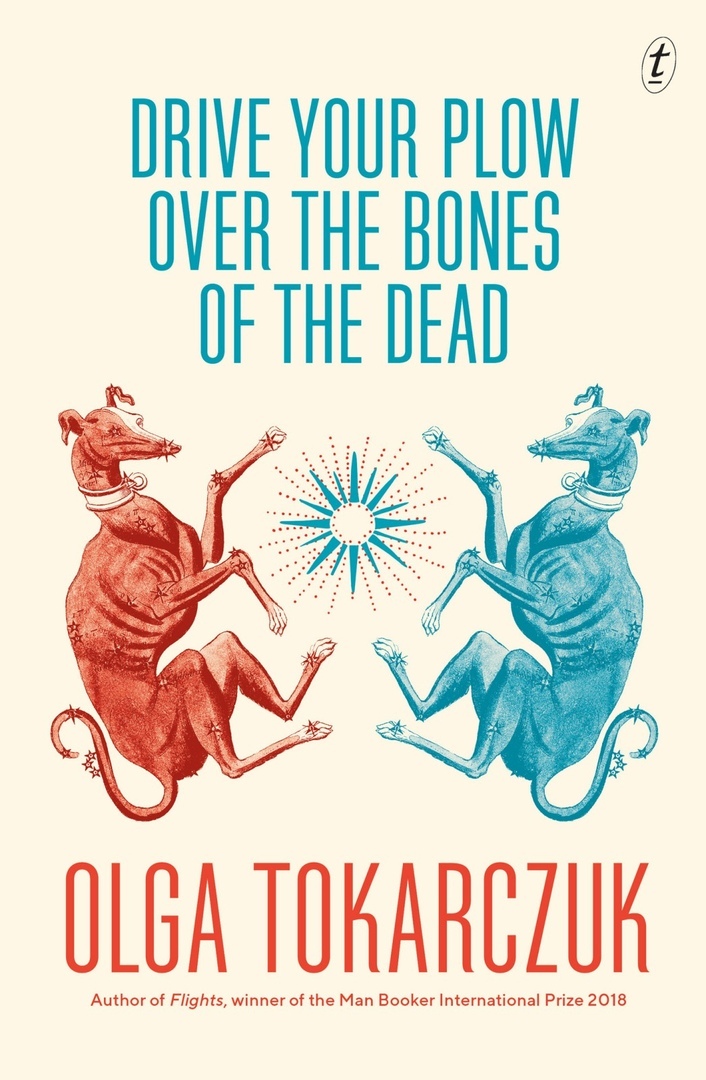
A subversive, entertaining noir novel from the winner of the 2018 Man Booker Prize.
Drive Your Plow Over the Bones of the Dead takes place in a remote Polish village, where Janina, an eccentric woman in her sixties, recounts the events surrounding the disappearance of her two dogs. When members of a local hunting club are found murdered, she becomes involved in the investigation. Janina is reclusive, preferring the company of animals to people; she’s unconventional, believing in the stars, and she is fond of the poetry of William Blake, from whose work the title of the book is taken.
Filled with wonderful characters like Maladroit, Big Foot, Black Coat, Dizzy and Boros, this subversive, entertaining noir novel, by ‘one of Europe's major humanist writers’ (Guardian), offers thought-provoking ideas on our perceptions of madness, injustice against marginalised people, animal rights, the hypocrisy of traditional religion, belief in predestination—and getting away with murder.
Olga Tokarczuk is one of Poland’s best and most beloved authors. In 2015 she received the German-Polish International Bridge Prize, as well as Poland's highest literary honour, the Nike and the Nike Readers’ Prize. She also received a Nike in 2009 for her novel Flights, which won the Man Booker International Prize in 2018.
‘A strongly voiced existential thriller.’ Guardian
‘A moral thriller that will keep you guessing until its very last page.’ Culture.pl
Thanks for reading Sick Sad Lit! This post is public so feel free to share it.


